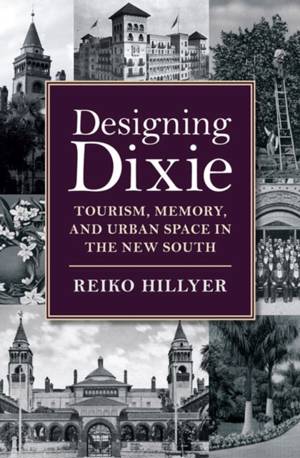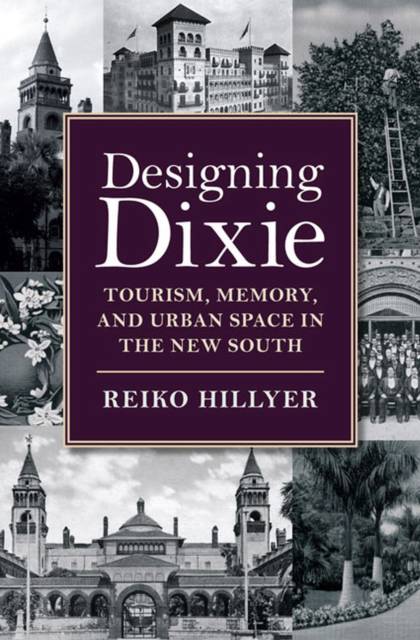
- Retrait gratuit dans votre magasin Club
- 7.000.000 titres dans notre catalogue
- Payer en toute sécurité
- Toujours un magasin près de chez vous
- Retrait gratuit dans votre magasin Club
- 7.000.0000 titres dans notre catalogue
- Payer en toute sécurité
- Toujours un magasin près de chez vous
Description
Although many white southerners chose to memorialize the Lost Cause in the aftermath of the Civil War, boosters, entrepreneurs, and architects in southern cities believed that economic development, rather than nostalgia, would foster reconciliation between North and South. In Designing Dixie, Reiko Hillyer shows how these boosters crafted distinctive local pasts designed to promote their economic futures and to attract northern tourists and investors.
Neither romanticizing the Old South nor appealing to Lost Cause ideology, promoters of New South industrialization used urban design to construct particular relationships to each city's southern, slaveholding, and Confederate pasts. Drawing on the approaches of cultural history, landscape studies, and the history of memory, Hillyer shows how the southern tourist destinations of St. Augustine, Richmond, and Atlanta deployed historical imagery to attract northern investment. St. Augustine's Spanish Renaissance Revival resorts muted the town's Confederate past and linked northern investment in the city to the tradition of imperial expansion. Richmond boasted its colonial and Revolutionary heritage, depicting its industrial development as an outgrowth of national destiny. Atlanta's use of northern architectural language displaced the southern identity of the city and substituted a narrative of long-standing allegiance to a modern industrial order. With its emphases on alternative southern pasts, architectural design, tourism, and political economy, Designing Dixie significantly revises our understandings of both southern historical memory and post-Civil War sectional reconciliation.
Spécifications
Parties prenantes
- Auteur(s) :
- Editeur:
Contenu
- Nombre de pages :
- 280
- Langue:
- Anglais
- Collection :
Caractéristiques
- EAN:
- 9780813936703
- Date de parution :
- 29-12-14
- Format:
- Livre relié
- Format numérique:
- Genaaid
- Dimensions :
- 160 mm x 239 mm
- Poids :
- 517 g

Les avis
Nous publions uniquement les avis qui respectent les conditions requises. Consultez nos conditions pour les avis.






